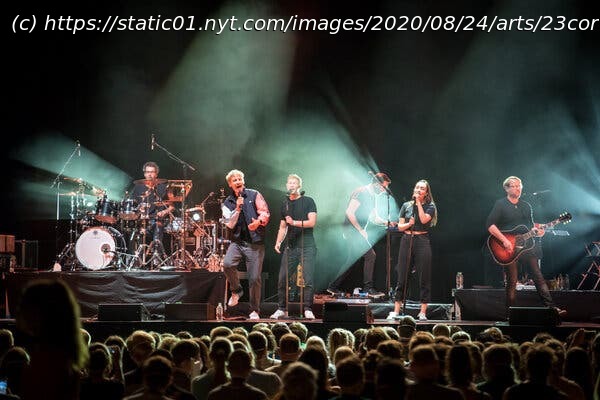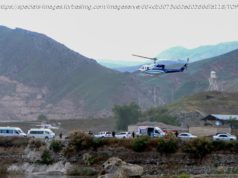In Germany, volunteers gathered in an arena for an experiment that could help create safety measures for live events around the world.
The German pop singer Tim Bendzko was trying his best to energize the crowd at Quarterback Immobilien Arena here on Saturday morning. Flanked by band members and backup singers, he bounced across a stage at the indoor concert and sports venue, thrusting his microphone toward about 1,400 tightly packed audience members, prompting them to sing along. The response was a muffled hum — unsurprising, given that the audience members were wearing masks and sitting in sweltering heat. Still, an undaunted Mr. Bendzko thanked them and said, “On this day, you are saviors of the world.” They were not typical concertgoers, but volunteers in an elaborate study by a team at Martin Luther University Halle-Wittenberg called Restart 19. Each attendee, outfitted with a digital location tracker and hand disinfectant laced with fluorescent dye, were carefully positioned on seats as part of one of the first experiments by scientists to track the risks of coronavirus infection posed by large, indoor events. Researchers hope to use their results to determine which elements of events like this pose the greatest risk for transmission and help create guidelines for limiting such dangers and safely restarting live performances around the world. The live-music and events sector has been among the hardest hit by the coronavirus pandemic. In Germany alone, it brings in 130 billion euros in revenue each year, according to a recent study commissioned by the I. G. V. W., an industry group there. Concert venues were among the first to shut down to slow the virus’s spread, and their futures remain uncertain. Indoor performances have returned in Germany, but slowly, under rules that vary from state to state. Many venue operators and event organizers, however, argue that the limitations on crowd size and hygiene requirements imposed by authorities make it economically unviable for venues that aren’t subsidized by the state to restart operations. In the United States, health experts have said that arena concerts would likely not happen on a wide scale until a vaccine becomes available.






